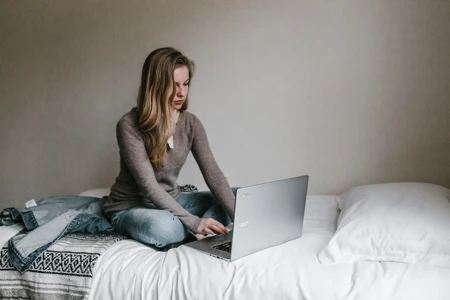Right to Buy could be a way for you to get onto the property ladder. Here’s everything you need to know about the scheme.
What is Right to Buy?
Right to Buy is a Government scheme that allows tenants renting social housing from their local council in England to buy the property they live in at a discounted rate.
The scheme has been abolished in Scotland and Wales, while the rates available to tenants in Northern Ireland differ from those in England.
What discount can I get through the scheme?
The longer you’ve lived in your home, the greater the discount you’ll be able to claim on the market value of the property.
The rates differ depending on your location and whether you live in a house or a flat.
The maximum discount for both a house and a flat is £80,900, or £108,900 if you live in London.
For tenants in a house, you’re entitled to an initial 35% discount on the value of your home if you’ve lived there for at least three years and less than five. After five years, an additional 1% is added to your discount potential for every year that you live there.
If you live in a flat, you’ll receive an initial 50% discount on your home, followed by an extra 2% every year after that.
What's the difference between Right to Buy and Right to Acquire?
Right to Buy currently only extends to council tenants and not those in properties owned by housing associations.
The Right to Acquire is a similar scheme for tenants living in a housing association property, but the discount potential is much smaller at a maximum of £16,000 compared to a maximum of £80,900.
However, a recent pilot extended the Right to Buy scheme to some housing association tenants. This could mean that the scheme will be extended to all housing association tenants in the future.
Who is eligible for Right to Buy?
To qualify for the Right to Buy your home from your local council, you must:
- Have lived in public sector properties for at least three years
- Be a resident in England
- Have a self-contained property with no shared living areas
- Live there as your main residence
- Have a legal contract with the landlord
- Not have outstanding debt orders or an undischarged bankruptcy
- Not be in a home due for demolition
- Not have any outstanding possession orders
A public sector landlord could be a council, housing association, or the NHS. You must have had at least three years’ residency with a public sector landlord, but they don’t have to be consecutive years.
How will it affect my finances?
As with any property purchase, there are significant implications of becoming a homeowner.
While you will no longer have monthly rent to pay, you’ll still be responsible for mortgage repayments and may need to find capital for a deposit, too. You need to also consider the costs of owning your home, such as ongoing maintenance and repairs, and any leasehold or ground rent fees.
Your income may change when you own your property, too. You may currently be in receipt of Housing Benefit towards your rent, for example, but this cannot be claimed to pay for mortgage repayments.
There are also financial implications if you want to sell your home. If you sell within 5 years, you’ll need to pay a portion of your discount back. When you sell within the first ten years, it must be offered to your old landlord, or another social landlord, before it goes to the private market.
How do I apply for the Right to Buy scheme?
If you fit the eligibility criteria, you need to download and fill out the Right to Buy request form and send it to your landlord.
Your landlord will tell you how much they think the property is worth, plus the discount you’ll receive on that price. Your landlord also has to inform you of any leasehold or ground rent fees of the next five years, the boundaries and land included in the sale, and any problems with the property such as subsidence.
You’ve then got 12 weeks to decide if you want to buy. If you change your mind about buying the property, you won’t lose your right to rent. During this period, you can also question the price the landlord has quoted and request an independent valuer to provide an estimate.
Once you’ve accepted the offer from your landlord, the purchase process begins. You’ll need to speak to a mortgage adviser to find the right mortgage for your circumstances to complete the purchase of your home.
Find out more about our Mortgage Advice service in Grimsby

